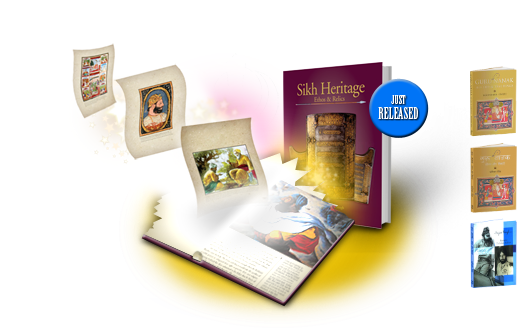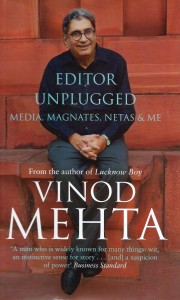Editor Unplugged: Media, Magnates, Netas and Me
by Vinod Mehta.
Penguin. Pages 281. Rs 599
Book review by Roopinder Singh
Journalists never retire, even when they walk into the sunset, they toil to produce columns. Sometimes, they write books. The sheer nature of a journalist’s work makes for an exposure to a wide range of situations and people of accomplishment. This wealth of information can, and often is, tapped for producing memoirs. Vinod Mehta has produced two books. The best-selling Lucknow Boy now has this sequel. The journey of the journalist — who spent a lifetime editing magazines, ranging from Debonair to Outlook, as well as brought out newspapers — is an interesting one. In this volume, he speaks from the time when he handed over the day-to-day running of the magazine to his successor, and became its editorial chairman.
He looks back at his life from this vantage point and talks about Niira Radia, the lobbyist made famous by her tapes, excerpts from which were printed in Outlook. Among those stung by the disclosures was industrialist Ratan Tata, and in spite of his best efforts, Mehta was unable to mend fences with him or India’s most famous industrial group.
Their reaction, cutting off advertisements to the offending magazine, was not entirely unexpected, and it hurt Outlook financially. The Radia tapes also hit the credibility of journalists as a tribe, something they rue about, even as they sought to reclaim the high-moral ground that they had taken for granted for themselves so far.
Corporate funding is needed for running media houses. However, corporate owners, who studiously allow editorial freedom, are increasingly rare. The Times-of-India model, where the corporate takeover has gone hand-in-hand with decreasing editorial clout and increasing profits, is one that many owners seek to emulate. However, others realise that the best newspapers are produced by best journalists, not marketing departments. Mehta’s chapter on corporate and the media presents the editorial point of view well, even as it shows how corporate funding is inescapable, except for a rare case of a newspaper, like The Tribune, run by a Trust. He goes on to say that ‘corporate control of the media is not the evil empire. The evil empire is cartelisation, which inevitably spins onto a monopoly or media dominance.’
Readers gravitate to autobiographies because of the promise they hold of an intimate look at the writer. What they get in this is, however, more of his opinions. But they are interesting and relevant. Talking about Arvind Kejriwal, he may have gone ‘From Hero to Zero’, but this ‘master in the politics of protests’ has bounced back, and it is instructive to read Mehta’s comments on this person, even as one may disagree with his contention that he is entirely media’s creation. Then there an interesting take on the Nehru-Gandhi dynasty and on Narendra Modi.
Why can’t Indians laugh, asks Mehta, even as he finds out that humour is not dead… well, it certainly isn’t thriving either. We find out the people he admires include Ruskin Bond, Sachin Tendulkar, Johnny Walker, Khushwant Singh and Arundhati Roy. Mehta’s books makes for a very interesting read. It may not reveal too much about the man, but then, one reads it for his perceptions and opinions, of which there are plenty as this editor is unplugged.
This review was published in The Tribune on February 22, 2015




